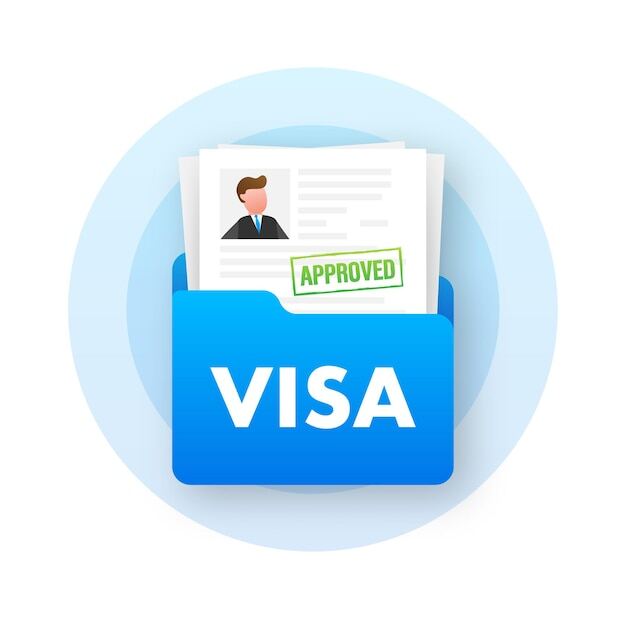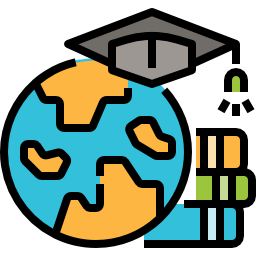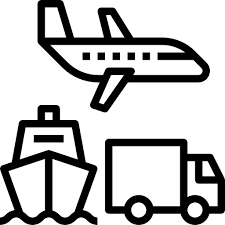Why study in South Korea?
In an effort to attract 200,000 international students by 2023, South Korea offers foreign students incentives such as part-time work opportunities, charging the same tuition as South Korean students, and access to hundreds of scholarships. Authorities have also facilitated working conditions for international students to find employment after graduation.
Studying in South Korea presents several advantages and attractive opportunities for international students. Here are some reasons why studying in Korea is beneficial:
Education, Technology, and Innovation: South Korea is renowned for its high-quality education system and prestigious universities. Many educational institutions offer robust academic programs and are well-ranked in international standings. The country is also a leader in technology and innovation, particularly in fields like electronics, engineering, and artificial intelligence. Studying in Korea provides access to resources and opportunities in these continually evolving areas.
Diverse Academic Programs: Korea offers a wide variety of academic programs in different disciplines, from sciences and technology to arts and humanities, allowing students to find options that align with their interests and goals.
English-Language Programs: Many Korean universities offer programs in English, making it easier for international students to study without the need to master the Korean language from the start.
Rich and Fascinating Culture: Studying in Korea allows students to immerse themselves in a unique and fascinating culture with a rich history, colorful traditions, delicious cuisine, and a vibrant cultural scene.
Reasonable Cost of Living: While major cities like Seoul can be expensive, the overall cost of living in South Korea is reasonable compared to other developed countries, making it attractive for international students.
Scholarship and Job Opportunities: The Korean government and many universities offer scholarship programs for international students, helping to reduce the costs of study and make it more accessible. South Korea is home to many international companies, providing internship and employment opportunities for international students after graduation.
Transportation and Safety: Korea boasts an efficient and safe public transportation system, facilitating travel throughout the country. Additionally, Korea is known as one of the safest countries in the world.
Cultural Exchange: Studying in Korea provides international students with the opportunity to interact with Korean and other international students, enriching their academic and cultural experience.
What can you study in South Korea?
As a foreigner, you have the opportunity to study a wide variety of academic programs in South Korea. Here are some attractive offerings:
-
Engineering and Technology: Korea's leadership in technology provides excellent opportunities to study engineering, computer science, electronics, robotics, and related disciplines.
-
Natural Sciences and Health Sciences: Programs in biology, chemistry, physics, medicine, dentistry, and other health sciences are highly valued at Korean universities.
-
Business and Economics: Korean universities offer programs in business administration, finance, marketing, and economics for those interested in the business world.
-
Arts and Humanities: Programs in visual arts, music, film, literature, history, and other humanities disciplines are available.
-
Language and Korean Culture Studies: Many universities offer programs to learn the Korean language and delve into Korean culture and society.
-
Social Sciences: Disciplines such as psychology, sociology, political science, and international relations are also available for international students.
-
Design and Fashion: Korea's renowned design and fashion industry provide programs in graphic design, fashion design, and other creative fields.
-
Environmental Sciences and Sustainability: Korean universities also offer programs in environmental sciences and sustainability studies.
-
Communication and Journalism: Programs in communication, journalism, and media studies are popular among international students.
These are just a few examples, and there are many more options available for foreign students in Korea. Each university has its particular academic offerings, so it is recommended to explore the websites of Korean universities and review their study programs to find the discipline that best suits your interests and educational goals.
What do you need to study in South Korea?
To study in Korea as a foreign student, you need to fulfill certain requirements and follow specific steps. Here are the key elements needed to study in Korea:
Program and University Selection:
- Choose the study program and university in Korea where you wish to enroll. Research different options and ensure that the university and program align with your interests and academic goals.
Academic Requirements:
- Meet the specific academic requirements of the university and program you are applying to. These requirements may vary depending on the level of study and the specialty.
Language Proficiency:
- If the program is conducted in Korean, you must demonstrate proficiency in the Korean language through an exam like the TOPIK (Test of Proficiency in Korean). Some universities offer programs in English, in which case, a certificate of English proficiency, such as TOEFL or IELTS, will be required.
Academic Documents and Certificates:
- Submit the required academic documentation, including certificates of previous studies, diplomas, academic transcripts, and letters of recommendation.
Admission Application:
- Complete the university's admission application process, typically done online. Ensure that you submit all required documents within the specified deadline.
Student Visa:
- Once accepted to a university in Korea, you will need to apply for a student visa at the Korean embassy or consulate in your country. To obtain the visa, you may need to provide additional documents and demonstrate sufficient financial resources to cover your study and living expenses in Korea.
Medical Insurance and Personal Financing:
- It is mandatory to have valid medical insurance while studying in Korea. Some universities may offer medical insurance options for international students. Make sure you have enough financial resources to cover tuition, accommodation, food, and other expenses while studying in Korea.
Studying in Korea can be a rewarding experience, offering a blend of academic excellence, cultural richness, and diverse opportunities for personal and professional growth.
Why work in South Korea?
Working in South Korea offers diverse advantages and opportunities for international workers. Here are some reasons why working in Korea is beneficial:
Economy, Technology, and Innovation:
- South Korea boasts a robust and developed economy, providing employment opportunities across various sectors and companies. The country is also a leader in technology and innovation, offering the chance to work in a highly technological and advanced environment.
Job Stability:
- South Korea is known for its stable and secure work culture, with labor laws that protect workers' rights.
Career Opportunities:
- Working in Korea can offer opportunities for professional growth and career development, especially in industries like technology, engineering, and scientific research.
Attractive to Multinationals:
- Many multinational companies have headquarters or subsidiaries in South Korea, opening doors to work in an international environment and gain global experience.
Competitive Salaries:
- In some sectors, salaries in Korea are competitive and attractive for qualified professionals.
Intercultural Experience:
- Working in Korea provides the opportunity to experience a unique and enriching culture, as well as interact with Korean colleagues and individuals from different nationalities.
Safety and Low Crime Rates:
- South Korea is considered one of the safest countries globally, providing tranquility to foreign workers.
Language Learning Opportunities:
- Working in Korea also offers the chance to learn the Korean language, which can be advantageous for professional and personal development.
It's important to note that working in Korea may require complying with certain legal requirements and obtaining an appropriate work visa. It is also advisable to research the work culture and business customs of Korea to better adapt to the country's work environment.
Advantages of working in South Korea
Living in South Korea as a foreigner offers numerous advantages and enriching experiences. Here are some highlighted benefits:
Unique Culture and Traditions:
- South Korea has a rich and fascinating culture with millennia-old traditions, vibrant festivals, and a delicious cuisine that allows you to immerse yourself in a unique cultural experience.
Advanced Technology:
- Korea is renowned for its leadership in technology and innovation. Living in Korea allows you to be surrounded by technological advancements and cutting-edge services.
Safety and Low Crime Rates:
- South Korea is one of the safest countries globally, providing security and safety to foreign residents.
Efficient Transportation System:
- Korea has an excellent public transportation system, including high-speed trains and an extensive metro system, facilitating travel within the country.
Employment and Professional Development Opportunities:
- South Korea offers job opportunities in various sectors, especially in technological and industrial industries, attracting professionals from different countries.
High Quality of Life:
- Korea features modern amenities, quality healthcare services, high-level education, and a well-developed infrastructure, contributing to a high quality of life for foreign residents.
Language Learning Experience:
- Living in Korea provides the opportunity to learn the Korean language, opening doors to new personal and professional opportunities.
Cultural Scene and Entertainment:
- Korea is known for its entertainment, from K-pop music to movies and television dramas, offering a rich cultural experience for foreign residents.
Natural Beauty:
- South Korea offers a diversity of stunning landscapes, from mountains and beaches to national parks, allowing residents to enjoy the country's natural beauty.
International Community:
- Korea has a growing international community, providing the opportunity to meet people from different cultures and establish global connections.
What jobs can you do?
To work in large Korean companies, everything must be certified. For example, if you know English, you need to attach the TOEIC/TOEFL certificate, have volunteer work, internships, etc.
Other jobs include teaching Spanish or English, marketing, design, and primary jobs like waiter/waitress, babysitter, kitchen staff, manual labor, etc.
How are salaries in South Korea?
Salaries in South Korea vary depending on the industry, level of experience, location, and type of work. South Korea is known for having a competitive compensation system, especially in technological and industrial sectors. Here's an overview of salaries in Korea:
Minimum Wage:
- The minimum wage in South Korea is set by the government and adjusts annually. Workers receiving the minimum wage are protected by labor laws and should receive at least the current minimum wage.
Salaries in Technological Industries:
- Technological industries, such as electronics, engineering, and software development, tend to offer competitive salaries for qualified and experienced professionals.
Salaries in Manufacturing Industries:
- Manufacturing companies in Korea also offer competitive salaries, especially for skilled workers in areas like automotive, electronics, and machinery.
Salaries in Professional Services:
- Professionals in fields like medicine, law, banking, and finance can also obtain attractive salaries, especially in large companies and international firms.
Salaries in Language Teaching:
- For teachers of English and other foreign languages, salaries can vary depending on the educational institution and the teacher's experience.
Benefits and Bonuses:
- Some companies in Korea offer additional benefits such as bonuses, transportation subsidies, medical insurance, and paid vacations.
It's important to consider that the cost of living in large cities in Korea, such as Seoul, can be relatively high. However, salaries are usually adjusted to reflect this cost of living and provide a comfortable life for workers. Additionally, the tax system in Korea can impact the net salary that workers receive after taxes.
It's advisable to research and compare salaries in the specific field or industry you are interested in, as figures can vary considerably depending on the employer and working conditions.
Minimum wage in South Korea
The minimum wage for the next year will be 460 won (5%) higher than the 9,160 won in 2022. Based on a 40-hour workweek, the monthly salary would be 2,010,580 won (approximately 1550 dollars).
Advantages of living in South Korea
We present some highlighted advantages:
Unique Culture and Traditions:
- South Korea boasts a rich and fascinating culture with millennia-old traditions, vibrant festivals, and delicious cuisine that allows you to immerse yourself in a unique cultural experience.
Advanced Technology:
- Korea is renowned for its leadership in technology and innovation. Living in Korea will surround you with technological advancements and cutting-edge services.
Safety and Low Crime Rates:
- South Korea is one of the safest countries globally, providing peace of mind and security to foreign residents.
Efficient Transportation System:
- Korea has an excellent public transportation system, including high-speed trains and an extensive metro system, facilitating travel within the country.
Employment and Professional Development Opportunities:
- South Korea offers job opportunities in various sectors, especially in technological and industrial industries, attracting professionals from different countries.
Language Learning Opportunities:
- Living in Korea provides the opportunity to learn the Korean language, opening doors to new personal and professional opportunities.
Cultural Scene and Quality of Life:
- South Korea is known for its entertainment, from K-pop music to movies and television dramas, offering a rich cultural experience for foreign residents. This territory boasts modern amenities, quality healthcare services, high-level education, and a well-developed infrastructure, contributing to a high quality of life for foreign residents.
Natural Beauty:
- South Korea offers a diversity of stunning landscapes, from mountains and beaches to national parks, allowing you to enjoy the country's natural beauty.
International Community:
- Korea has a growing international community, providing the opportunity to meet people from different cultures and establish global connections.
How to immigrate to South Korea
Here's a general guide on how you can immigrate to Korea:
Obtain a Visa:
- The first thing you need is to obtain a visa that allows you to reside in South Korea. Common visas for foreigners include the work visa, student visa, temporary residence visa, among others. The visa you need depends on your purpose and duration of stay in Korea.
Find a Job or Study Program:
- If you plan to work in Korea, you need to look for an employer willing to sponsor your work visa. If you want to study in Korea, you must be accepted into a recognized educational institution and obtain a student visa.
Meet Visa Requirements:
- Each type of visa has specific requirements that you must meet, such as demonstrating sufficient financial funds, medical exams, criminal record certificates, etc. Make sure to gather all necessary documentation before submitting your visa application.
Visa Application and Residency Permit:
- Once you have gathered all required documents, you can submit your visa application at the embassy or consulate of South Korea in your country of origin. The application process may vary depending on the visa you are applying for. You should obtain a residency permit within 90 days of your arrival. This process is done at immigration offices in Korea.
Integrate into Korean Society:
- After obtaining your visa and residency permit, you will need to adapt to life in Korea, learn about the culture, language, and local customs.
It's important to note that immigration regulations and processes may change, so it's always advisable to check with the embassy or consulate of South Korea in your country for updated information on requirements and procedures for immigrating to Korea. Additionally, you may want to consider hiring the services of an immigration lawyer or consultant specialized in immigration matters to guide you through the process.
What to visit in South Korea?
South Korea's mountainous terrain hides magnificent temples, ancient villages that have been inhabited for centuries, and modern cities that contrast with the country's deep-rooted traditions. Some recommended places to visit in Korea include parks & gardens, palaces & temples, museums, themed cafes & restaurants.
Hwaseong Fortress in Suwon:
- A UNESCO World Heritage Site, accessible by metro from Seoul in just an hour. Suwon offers kilometers of walls built along the natural terrain, providing a stroll through the old city perimeter with street art and cozy cafes near the palace.
Beomeosa Temple in Busan:
- Situated atop a famous hill in Busan, it features markets to explore more about the local gastronomy in different provinces.
Hongik University Area (Hongdae):
- A contrast to temples and palaces, Hongdae is incredible. Filled with youth, pubs, style, trend, underground culture, independent bands, energy, freedom, and diversity.
South Korea offers a variety of tourist destinations combining rich history, modernity, and the country's natural beauty. Here are some recommendations:
Gyeongbokgung Palace in Seoul:
- The largest and most iconic palace in Korea, where you can enjoy traditional architecture and learn about the history of the Joseon Dynasty.
Bulguksa Temple in Gyeongju:
- An impressive Buddhist temple considered a UNESCO World Heritage Site, offering panoramic views of the surrounding landscapes.
Jeju Island:
- Known as the "Island of the Gods," famous for its natural beauty, volcanic landscapes, beaches, and waterfalls.
Changdeokgung Palace in Seoul:
- Another beautiful palace of the Joseon Dynasty, known for its secret garden and elegant architecture.
DMZ (Demilitarized Zone):
- A limited-access area separating North and South Korea. You can take a tour to learn about the history and political situation of the peninsula.
Haeinsa Temple:
- Home to the Tripitaka Koreana, a collection of wooden-carved Buddhist scriptures, recognized as a UNESCO World Heritage Site.
Busan City:
- The second-largest city in Korea, famous for its beaches, Jagalchi fish market, and the Gamcheon cultural village.
Changgyeonggung Palace in Seoul:
- Another beautiful palace of the Joseon Dynasty, known for its ponds and serene landscapes.
Seoraksan National Park:
- An impressive national park with mountains, rocky peaks, and lush vegetation.
Incheon City:
- Besides being Korea's largest international airport, Incheon has a vibrant cultural scene with museums, parks, and traditional markets.
Culture Scenes in South Korea
The Korean Wave, or Hallyu, has spread to Chile, Peru, Mexico, and other Latin American countries. It's not just about music; Korean television series, known as K-dramas, are also gaining popularity worldwide.
K-pop is the most popular, exploding every few years and now establishing itself worldwide. The global appeal of K-pop is attributed to the mix of familiarity with something new.
Useful information about South Korea
SALARY AND TAXES
![]()
Accommodation (Cost per person in a shared house/apartment):
Cities: ₩500,000 - ₩800,000
Towns: ₩250,000 - ₩500,000
Utilities (electricity, heating, water, garbage): ₩50,000 - ₩100,000
Groceries: ₩200,000 - ₩300,000
Public Transportation: ₩55,000 - ₩70,000
Other Expenses (dining out, entertainment, personal care): ₩150,000 - ₩300,000
Total: Approximately ₩705,000 - ₩1,570,000 (1,200 USD)

VISAS AVAILABLE WITH OUR PROGRAMS
Why experience South Korea?










Other programs in Korea

Language Courses
At XPA, we collaborate with the best schools and universities worldwide for language learning, and we provide highly competitive prices for the course you are looking for. Get a quote with us!





